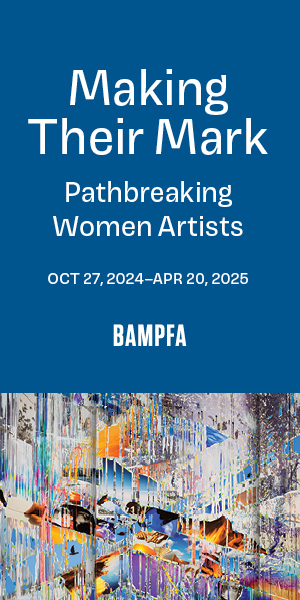Johnny Ray Huston offers a chronological—and with her latest release Color Theory, chromatic—guide to Nashville singer-songwriter Soccer Mommy‘s releases, from Bandcamp self-expression to the majors.
1. Songs for the Recently Sad, 2015
The bedroom is a private space, where dreams form, and sometimes, where they become real. Certainly this is true in the realm of rock music, and more specifically indie rock —there, the bedroom is a workspace, where lo-fi recordings take form and become real, soundtracking the mind of a listener who may or may not be in a bedroom herself. So it is with the Bandcamp-set wise juvenilia of Sophie Allison, aka Soccer Mommy. Clocking in at a perfect 18 minutes, the teenage tracks of tears that make up Songs for the Recently Sad evoke K Records releases and Liz Phair’s Girly Sound cassettes in their unadorned purity. From the get-go, 17-year-old Allison has a kinship with special moments from the ‘90s, and a flair for male portraiture. The opening track “Jacob” is one such snapshot, with an active desire less crude than Phair’s and more attuned to boyish beauty.
2. Songs From My Bedroom, 2015
The technique is rudimentary in comparison to what’s to come, but a fuzzed-out highlight here is “Molly Ringwald,” with its subtly seething observation “Lovely, she looks straight out the movies with her red hair/Like the girl they loved back in the ‘80s/I wish she would go back there.” It performs a trick similar to Bikini Kill’s “Tony Randall,” making pop culture serve a first-person story of frustrated female desire.
3. Songs From My Bedroom Pt. 2, 2016
Allison has a facility for striking intro lines, and the one in “You Won’t Leave” is no exception. “He only loves you when he’s high,” she observes to a friend who’s settling for some boy’s scraps. The sound is still shambling, the production near nonexistent, but the first of several musical shifts forward is on the horizon.
4. For Young Hearts, 2016
First, the arresting cover photo: Allison looks just like a young Dana Scully. (She’s a fan of The X-Files.). Here, her writerly talent for bringing hard-to-reach wild boys up close is in full effect — you can taste their lips and see the confused looks in their eyes. She also deploys evocative motifs: A dad’s baseball cap shows up in two songs, while the title “Skinned Knees” is one example of bloody knee-and-knuckle imagery that has dotted her lyrics from her earliest recordings through today.
The album slowly builds to a stellar three-song finale. On “Blood Honey,” where she effortlessly uses palpable in a rhyme, Allison is a seductress pulling the floor out from under a tricky guy. “Grown” is perhaps the darkest and most vivid male portrait of her career to date — like watching someone fall apart in slow motion from the corner of an eye. “Everybody’s asking about my future plans/I’m still trying to get into your pants,” Allison admits at one point, but there’s genuine heartbreak in her rendering of a boy who —dodging beers and fears, leaving parties early alone — robs himself of teenage joy by acting old before his time. But it’s the closer, “Switzerland,” that is Soccer Mommy’s first purely sublime song. Its stark, instantly arresting lead-off admission — “I don’t even know who I am” —gives way to a sly and tender finger-picked ballad in which growing old together is the ultimate goal of coupledom. The nation in the title functions as a site of romantic fantasy and escape, but it also has real-life roots: Allison was born in Switzerland before her family relocated to Nashville, Tennessee.
5. Collection, 2017
One thing that distinguishes Soccer Mommy from the hordes of ‘90s-sounding artists is that if they existed back then they’d be just as special. Part of the reason is Allison’s unique grab bag of references —she’s equally influenced by Slowdive, Sleater-Kinney and the Dixie Chicks. Hinging on the divide between when a woman claims her agency and when she’s being selfish, the lead-off track here, “Allison,” doesn’t just evoke the songwriter’s last name, it also almost echoes the title of a well-known Slowdive track. On “Try,” there’s a bluesy back-and-forth between her voice and the main guitar lick, and a sound that reflects the nascent stage of a new band formation. “Death by Chocolate” contains hints of the high-school romance Allison will explore more assuredly in her more full-bodied studio recordings. Throughout, she hones a poeticism and set of motifs so plain, direct, honest and conversationally natural that they’re easy to miss.
6. Clean, 2018
What album contains two of the best rock singles of the 21st century’s teenage years? The answer is Clean. Beginning with an epic wide-screen intro that’s pure Slowdive and closing with a pitch drop that Dinosaur Jr. might envy, “Cool” is a bop that crams a whole lot into its three minutes. Allison observes high school coolness from just outside with a mix of awe and wry analysis, creating distant characters when her voice her isn’t dancing down the steps of the title word with intuitively catchy ease. Flipping the sentiment of “I Wanna Be Your Dog” in a Phair-like manner to a guitar riff that’s equal parts Pylon and Nirvana, “Your Dog” (as in I don’t want to be) might even be better, with Allison unspooling one effective pet metaphor after another. “Forehand kisses break my knees and leave me crawling back to you,” she sings.
Casually delivered animal imagery is all over the first three songs. With its hollow-bodied sound, “Still Clean” inaugurates the album’s rich banquet of guitar tones, as Allison chronicles nearly being consumed twice by a vividly rendered type: the pseudo-boyfriend who turns into a predator each summer. Not for the first time, she creates an image of a victor picking the remains of a victim out of bloody teeth. Whether she’s grazing up against glorious riffs and producer Gabe Wax’s stereo hand claps and kick drums (“Skin”), giving listeners a female version of Big Star (“Last Girl”), forlornly wanting more from love that it can give (“Flaw”), or turning to astrology as a last resort (“Scorpio Rising”), Allison takes to the recording studio like a true natural. She discovers her charisma, and the effect is exhilarating. Her voice was already there, but now she’s expressing its full potential.
PS: Something to puzzle over—the names of Soccer Mommy and Lindsay Jordan’s band Snail Mail don’t just have retro associations, they also share the same initials. In fact, both artists, generational peers, identify the sadomasochism that may be inherent in love, and fight to establish strong identities and adult autonomy in relation to it.

7. “Henry”/“I’m On Fire,” 2018
Using the studio to redo and tease out a track from For Younger Hearts, the A-side is another of Allison’s precise male portraits, this time of a guy “too gone/to open up” who drives “all the good girls bad with that evil smile of his.” The chorus summarizes the full paradox of the bad boy archetype: “He won’t ever love the way I did/But everybody’s falling hard for him.” Really, though, this 7” single might as well be “Henry”/“Bruce,” since the B-side’s cover of a Springsteen classic adds another layer to the original, diffidently different from the Chromatics’ spotlight on the creepy incestuousness of the lyric. Allison’s vocal is almost as deadpan, but it merges with her guitar to create the languor of a mid-afternoon fantasy on a hot day.
8. Color Theory, blue section, 2020
During “Wildflowers,” the final track on Clean, Allison compares a just-lost lover to “a child running for nothing.” On “Bloodstream,” the opening track of follow-up Color Theory, she remembers running through her yard as child, and hydrangeas soon bloom into the picture. The injury imagery from earlier in her songwriting returns in more traumatic form: a red river pouring from her knuckles into the sink, and ribbons running down from her bare knees. But this song goes deeper than surface wounds. “I know it’s waiting there, swimming through my bloodstream/And it’s gonna come for me,” Allison sings, identifying a theme of mental unease that runs through the album from start to finish. Yes, with the bravery of youth, the 22-year-old, by now a music biz veteran, has a made a pop record that’s overtly about severe depression and bipolar disorder.
The most flagrantly pop track is “Circle the Drain,” this time about how malaise can rear its head even during seemingly happy, normal times. Whereas “Bloodstream” evokes early Radiohead with its hard, scraping edges, here Allison is going for an Avril Lavigne glossy platinum effect, though the layer upon layer of production effects, from bubbling liquidity and fiddle-like guitar riffs to a vivid deployment of the kick drum, are too characterful in their musicianship for Billboard top 10 status. It’s no accident that Allison uses thin throat tones rather than chest vocals as her voice keens upward then crawls back inside disconsolately — the song occupies troubled head space to a degree that denies bodily concerns.
Starting raw on acoustic guitar, “Royal Screw Up” brings us back to the bedroom realm from which Allison’s songwriting began, but with greater writerly sophistication. Caught up or just plain caught in a video game, she begins as a princess waiting to be rescued by a man in armor, but after a glimpse in the mirror — another of the album’s touchstones — ends up a dragon holding herself captive. Each crushing moment at the close of one verse bleeds into the beginning of the next, and in a chilling final touch, dry applause greets her realization that inner lack of control puppeteers her miserable destiny.
The coldly appreciative audience at the end of that song turns into an oblivious, talkative one throughout the painfully personal “Night Swimming” — Gabe Wax’s production conjures the all-too-familiar atmosphere of an acoustic performer attempting a quiet ballad as a loud crowd ignores her. This sense of futility seeps into the lyric as Allison strings together a series of rhymes. “Standing in the living room, talking at you staring at your phone/It’d a cold I’ve known,” she quietly notes at one point. It’s the second song in a row that moves from coupledom to a stark rendering of solitude.
9. Color Theory, yellow section, 2020
For a song about depression bleeding into paralyzing paranoia, “Crawling in My Skin” is deceptively lovely on the surface. Its spiraling, layered figure-eight melodies would do vintage Johnny Marr proud. But by the second time the chorus rolls around, all those lovely figure-eights have become a swarm of frantic sixteenths, crowding around the singer, growing ever more oppressive and disorienting. Jeering her. In their wake, a rhythm tick-tocks with cruel relentlessness. A tough and talented person wrote this song, with its oblique nod to the Ramones’ desire to be sedated. Oh, it’s “just” a pop song. But listen close enough and the experience is harrowing.
It’s the lead-up to Color Theory’s most ambitious track, “Yellow is the Color of Her Eyes.” Jaundice isn’t a metaphor but literal as Allison tracks degrees of pain in relation to a loved one’s encroaching death. A Slowdive influence is most apparent in the initial faraway, sky-straining guitar sound here, which gives way to a seemingly upbeat carousel of Sundays-like melody as the lyric confronts one of the album’s sub themes: lies told to one’s self. Next, Allison evokes the loneliness of an ocean view from a plane — water, often a marker of melancholy in the album’s world of words, here becomes one of mortality. About five minutes in, the song transforms a second and third time, as a solitary and lonely guitar line gives way to groaning glam rock. Utterly unsentimental, the result is a fatal reverse lullaby, sung from daughter to mother.
From this epic track, Color Theory shifts to the knowingly ephemeral and fleeting “Up the Walls,” which trips and falls upon the vast distances that remain within romantic intimacy, the ceaseless demands of love.
10. Color Theory, gray section, 2020
The Lucy of “Lucy” is short for Lucifer, an attractive black leather rebel with feathered hair leading Allison into the darkness of depression and, perhaps, addiction. The song’s sound is huge, as a spiraling, blocky riff is taunted by descending notes. Throughout, Allison’s lyric maintains a perfect cadence. She fights to reject the devil’s advances even as the guitars coil snake-like around her voice.
Performed solo, “Stain” is the closest Allison has come to the bluntness of a riot grrrl confessional. As in “Lucy,” she fights off a malevolent suitor, but this time he’s rapacious, ignoring what she has to say and exerting physical dominance. This is possibly the only Soccer Mommy song to contain the word hate.
The flowers of Clean’s last track and Color Theory’s opener return on the album closer “Gray Light.” But this time they’re shriveled, as Allison charts a sense of wonder and worry about her own mortality in relation to her mother’s. A tape effect fast-forwards or violently rewinds before a sharp and sudden ending.
Apparently Color Theory isn’t even worthy of an 8.0 rating from Pitchfork, whose reviewer criticizes the album’s three-part structure without engaging its overt subject, let alone the substantial craft of its interlocking metaphors and themes. So, as this list reaches a final number 10, I’ll come out and say it: It may nor rate a perfect score, but this is my favorite album so far this year. In fact, harnessing the full power of the band she’s assembled to face hard subject matter and forge an uncompromisingly colder sound, Allison has sharpened her vision. It’s 2020, and it’s 20/20.




